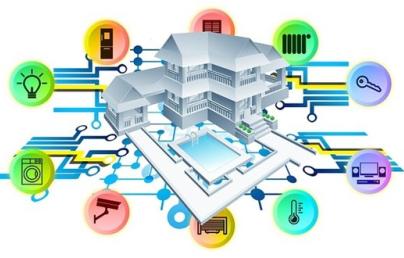
Vote for the December 2025 Topic of the Month (TOM) on BUILD UP!

Vote for the December 2025 Topic of the Month (TOM) on BUILD UP!
We want to hear the voice of our community: help us decide the Topic of the Month for December 2025! Choose from four key themes in the building sector and rank them by your level of interest. Your input will guide us in creating content that truly matters to you and the entire BUILD UP community.
At BUILD UP, we believe in the power of community engagement, especially when it comes to shaping the future of the building sector. The topics we focus on monthly have a significant impact on advancing energy efficiency, sustainability, and the implementation of key policies in the sector.
As we approach December 2025, we want you to decide which Topic of the Month (TOM) we will focus on. We’ve identified four potential themes, and we would love for you to share your opinion by ranking them based on your level of interest. These are the options with a brief explanation of the areas included.
Digitalisation and artificial intelligence (AI) in the building sector
Digitalisation and artificial intelligence (AI) are revolutionising the building sector by enhancing efficiency, sustainability, and user comfort. Smart technologies such as IoT sensors, AI-driven energy management systems, and digital twins enable real-time monitoring and optimisation of building performance. These tools help reduce energy consumption, predict maintenance needs, and support data-driven decision-making for renovations and retrofits. AI can also analyse vast datasets to identify patterns and recommend cost-effective energy-saving measures. In construction, digital tools streamline design and project management, improving accuracy and reducing waste. As buildings become more connected and intelligent, digitalisation plays a key role in achieving the EU’s climate goals under the Energy Performance of Buildings Directive (EPBD). However, successful implementation requires addressing data privacy, interoperability, and digital literacy challenges to ensure widespread adoption and equitable access.
Energy poverty and vulnerable households
Energy poverty affects millions of households across Europe, particularly those with low incomes, poor housing conditions, or limited access to energy-efficient technologies. These households often face high energy bills, inadequate heating or cooling, and health risks due to substandard living environments. As the building sector undergoes a green transition, it is crucial to ensure that vulnerable groups are not left behind. Policies must prioritise inclusive renovation strategies, targeted subsidies, and social support mechanisms to make energy-efficient upgrades accessible and affordable. Community-based programs and partnerships with local authorities can help identify and support those most in need. Addressing energy poverty not only improves living conditions but also contributes to social equity and climate resilience. Integrating social justice into the energy transition is essential for meeting the EPBD’s ambition while fostering public trust and participation.
Citizen-led initiatives: Renewable Energy Communities (RECs) and Citizen Energy Communities (CECs )
Renewable Energy Communities (RECs) and Citizen Energy Communities (CECs) empower individuals and local groups to collectively produce, manage, and consume renewable energy. These initiatives promote energy democracy by decentralising energy systems and giving citizens a direct role in the energy transition. In the building sector, RECs and CECs can drive renovations, install shared solar panels, and implement energy efficiency measures across residential blocks or neighbourhoods. They also foster social cohesion, local investment, and environmental awareness. By pooling resources and knowledge, communities can overcome financial and technical barriers to sustainable energy. EU legislation supports the development of RECs and CECs, recognising their potential to accelerate the uptake of renewables and reduce energy costs. Ensuring inclusive participation, especially from marginalised groups, is key to maximising their impact and aligning with the EPBD’s goals for a just and people-centred transition.
User acceptance and social aspects of new technologies
The success of new energy technologies in the building sector depends not only on technical performance but also on user acceptance and social integration. Residents must understand, trust, and feel comfortable using smart systems such as automated heating controls, energy monitoring apps, or AI-driven building management tools. Factors influencing acceptance include perceived benefits, ease of use, data privacy, and alignment with personal values. Social aspects such as community engagement, co-design processes, and transparent communication are essential to build trust and encourage behavioural change. Inclusive design that considers diverse user needs, especially for the elderly, disabled, or digitally excluded, is critical. Policymakers and developers must prioritise human-centred approaches to ensure that technological innovation supports, rather than alienates, building occupants. By addressing these social dimensions, the EPBD’s ambition for smarter, greener buildings can be realised in a way that is equitable and widely embraced.
We want to hear your thoughts. Please take a moment to complete the survey and help us choose the Topic of the Month for December. Rank the four topics from 1 to 4, based on your level of interest, using the available drag-and-drop feature.
Your feedback will help us focus on the content that matters most to you and the entire BUILD UP community!

